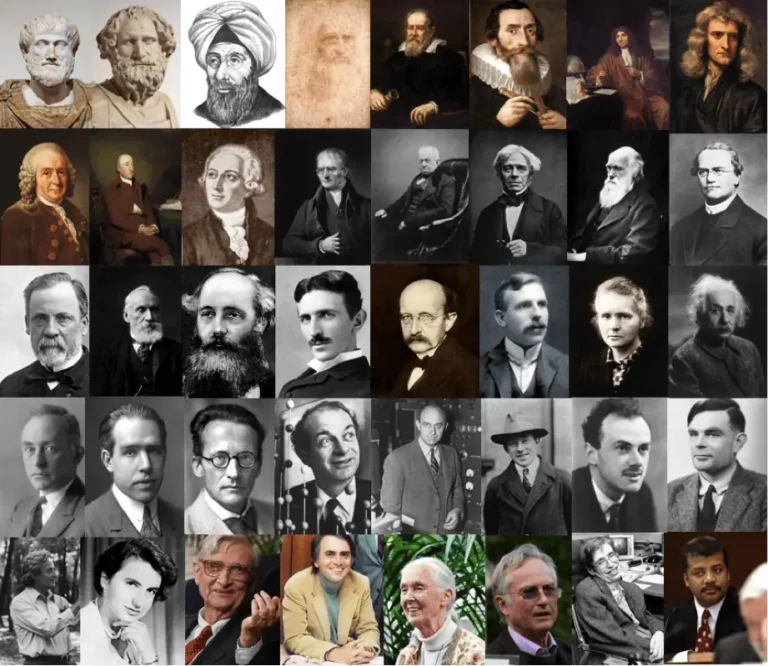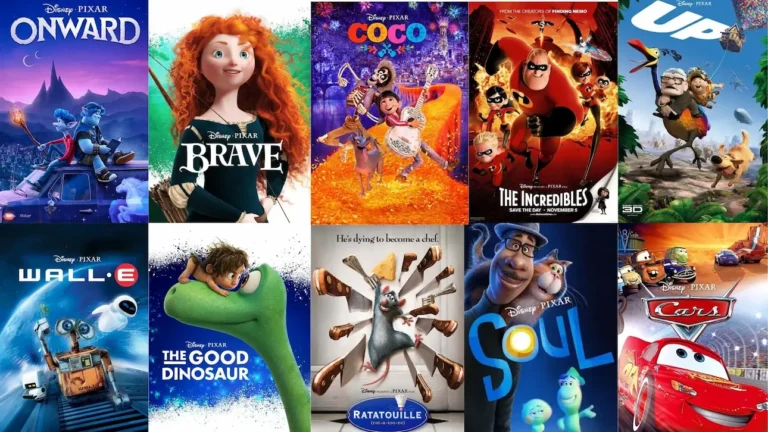Trivia quiz games have a rich and fascinating history that reflects changes in culture, technology, and social interaction. From their humble beginnings in the mid-20th century to their current status as a popular form of entertainment, trivia games have evolved significantly. This article explores the history of trivia quiz games, highlighting key milestones, trends, their impact on society, and some intriguing trivia facts.
See also our trivia quiz and answer generator or our fun facts page for the beloved did you know facts and other interesting fun facts.
The Origins of Trivia Quiz Games

Early Beginnings of Trivia
The concept of trivia can be traced back to the 1940s with the radio program “Take it or Leave It,” which featured quiz-style questions. This early format laid the groundwork for future trivia games by engaging listeners in a competitive knowledge-based format.In the 1960s, trivia began to gain more formal recognition. The popular quiz show “Jeopardy!” debuted in 1964, captivating audiences with its unique answer-and-question format. This period also saw the first written mentions of trivia in popular media, including a 1965 article in The Columbia Spectator, which described trivia as a game played by young adults reflecting on their pasts while enjoying friendly competition.
The Rise of Trivia Nights
The 1960s marked the beginning of trivia nights, particularly on college campuses across the United States. These informal gatherings allowed students to socialize while testing their knowledge on various topics. The Great Midwest Trivia Contest, held annually in Appleton, Wisconsin, is one of the oldest college-based radio trivia contests in America, showcasing the growing popularity of trivia among students.In the 1970s, trivia began to spread beyond college campuses, with the emergence of pub quizzes in the UK. These events combined social interaction with competition, often accompanied by drinks, making them a hit among young adults. Trivia nights became a staple in bars and pubs, fostering a community of quiz enthusiasts.
Evolution of Trivia Games
The Impact of Trivial Pursuit
The 1980s brought a significant shift in trivia gaming with the release of Trivial Pursuit in 1981. This board game became a cultural phenomenon, selling millions of copies and inspiring countless expansions and variations. Trivial Pursuit popularized the idea of trivia as a form of entertainment that could be enjoyed at home with friends and family.The game’s format, which included categories such as Geography, Entertainment, History, and Arts & Literature, allowed players to showcase their knowledge across a variety of subjects. The success of Trivial Pursuit led to a surge in the production of trivia-related products, including books, card games, and themed editions.
The Transition to Digital Platforms
As technology advanced, trivia games transitioned to digital formats. The rise of the internet in the 1990s and early 2000s led to the development of online trivia platforms and mobile applications. Websites like Sporcle and Fun Trivia offered users the ability to play trivia games online, creating a global community of trivia enthusiasts.Games like QuizUp and Kahoot! allowed players to compete against others worldwide, making trivia more accessible and interactive. Kahoot!, in particular, revolutionized the educational sector by allowing teachers to create interactive quizzes that could be played in real-time, enhancing classroom engagement.
The Role of Trivia in Social Interaction
Trivia games have always been about more than just answering questions; they foster social interaction and community building. Trivia nights at local bars and restaurants became popular social events, drawing in crowds eager to test their knowledge and enjoy a night out. These gatherings often sparked friendly rivalries and created lasting friendships among participants.In recent years, virtual trivia events have gained popularity, especially during the COVID-19 pandemic. Online platforms allowed people to connect and compete from the comfort of their homes, demonstrating trivia’s adaptability and enduring appeal.
The Cultural Impact of Trivia
National Trivia Day
Trivia’s cultural significance is highlighted by the establishment of National Trivia Day, founded by librarian Robert L. Birch in 1980. Celebrated annually on January 4, this day encourages people to engage in trivia contests, whether through formal events or casual gatherings with friends and family.National Trivia Day has inspired trivia enthusiasts to host events, share interesting facts, and participate in quizzes, further solidifying trivia’s place in popular culture.
Trivia in Education

Trivia games have also found a place in educational settings. Teachers use trivia to make learning more engaging, encouraging students to retain information through interactive quizzes. The competitive nature of trivia can motivate students to learn and explore new topics, making it a valuable educational tool.Research conducted by the University of California found that quiz-based learning significantly improved students’ retention of information compared to traditional study methods. This highlights the effectiveness of trivia as an educational strategy.
“Trivia games not only entertain but also educate, making them a valuable tool for learning.” — Dr. Jane Smith, Educational Psychologist
Trivia as a Tool for Social Change
Trivia games have also been used as a tool for social change. Organizations and non-profits have hosted trivia nights to raise awareness and funds for various causes, such as health research, environmental conservation, and social justice. These events not only entertain but also educate participants about important issues, fostering a sense of community and purpose.
Trivia Game Formats and Popularity
Popular Trivia Game Formats
Trivia games come in various formats, appealing to different audiences and preferences. Below is a table summarizing some of the most popular trivia game formats:
| Format | Description | Examples |
|---|---|---|
| Board Games | Traditional tabletop games played with family or friends. | Trivial Pursuit, Wit’s End |
| Online Quizzes | Web-based trivia games that can be played solo or with others. | Sporcle, Fun Trivia |
| Mobile Apps | Trivia games designed for smartphones and tablets. | QuizUp, Trivia Crack |
| Live Trivia Nights | Hosted events in bars or restaurants where teams compete. | Pub quizzes, Trivia nights |
| Educational Quizzes | Interactive quizzes used in classrooms to enhance learning. | Kahoot!, Quizizz |
The Future of Trivia Games
Technological Integration
The future of trivia games is likely to be shaped by continued technological advancements. The integration of augmented reality (AR) and virtual reality (VR) could create immersive trivia experiences, allowing players to engage with questions in new and exciting ways. Imagine a trivia game where players can explore a virtual museum and answer questions based on the exhibits they interact with!Additionally, artificial intelligence (AI) may enhance trivia games by personalizing questions based on players’ knowledge levels and interests. AI could analyze players’ performance and adapt the difficulty of questions in real-time, ensuring a challenging yet enjoyable experience.
Expanding Themes and Formats
As trivia continues to evolve, we can expect to see an expansion in themes and formats. From niche trivia focusing on specific interests, such as pop culture or science fiction, to collaborative trivia games that encourage teamwork, the possibilities are endless. This diversification will help trivia maintain its relevance and appeal to a broader audience.
The Rise of Mobile Trivia Apps
Mobile trivia apps are expected to continue growing in popularity. With the convenience of smartphones, players can engage in trivia games anytime and anywhere. Apps like Trivia Crack and QuizUp have already gained massive followings, and new entrants into the market are likely to emerge, offering unique features and gameplay experiences.
Trivia in the Age of Streaming
The rise of streaming platforms has also influenced trivia gaming. Shows like “HQ Trivia” and “The Chase” have brought trivia back to television, engaging audiences with live quizzes and the chance to win prizes. This trend may lead to more interactive trivia experiences, where viewers can participate in real-time through apps or websites.
Trivia Expertise: Fun Facts and Insights
Origins of the Term “Trivia”
The word “trivia” comes from the Latin term trivium, which means “the place where three roads meet.” In ancient times, this referred to the intersection of three subjects: grammar, rhetoric, and logic. Over time, the term evolved to describe bits of interesting or obscure knowledge.
The First Trivia Game
The first widely recognized trivia game was Trivial Pursuit, created in 1981 by Canadian journalists Scott Abbott and Chris Haney. The game quickly gained popularity, selling over 100 million copies worldwide and becoming a staple at social gatherings.
Trivia Shows on Television
Television quiz shows have played a significant role in popularizing trivia. “Jeopardy!”, which debuted in 1964, has become an iconic show, known for its unique answer-and-question format. Contestants must respond in the form of a question, adding an extra layer of challenge.
Trivia and Social Interaction
Trivia games encourage social interaction and bonding. Trivia nights at bars and restaurants have become popular social events, where friends and strangers alike can come together to test their knowledge in a fun and relaxed environment.
Trivia Competitions
Many cities host trivia competitions, where teams compete for prizes and bragging rights. The Great Midwest Trivia Contest is one of the longest-running trivia contests in the U.S., attracting participants from across the country.
Themed Trivia Nights
Themed trivia nights have gained popularity, allowing participants to test their knowledge on specific topics such as movies, music, history, or pop culture. These events often draw dedicated fans who enjoy showcasing their expertise in particular areas.
Trivia in Pop Culture
Trivia has made its mark in pop culture, with references appearing in movies, TV shows, and books. For instance, the character of Holly Golightly in Truman Capote’s Breakfast at Tiffany’s famously engages in trivia games, highlighting their cultural significance.
The Future of Trivia
The future of trivia looks bright, with technological advancements paving the way for innovative formats. Augmented reality (AR) and virtual reality (VR) could create immersive trivia experiences, while artificial intelligence (AI) may personalize trivia questions based on players’ interests and knowledge levels.
Conclusion
The history of trivia quiz games is a testament to their enduring popularity and cultural significance. From their origins in radio shows and college campuses to their current status as a global phenomenon, trivia games have evolved to meet the changing needs and interests of society. Whether enjoyed in person at a local pub or online with friends, trivia continues to entertain, educate, and bring people together.
Final Thoughts
As we look to the future, it’s clear that trivia quiz games will continue to adapt and thrive. Their ability to foster social connections, promote learning, and entertain makes them a valuable part of our cultural landscape. So gather your friends, brush up on your knowledge, and get ready for the next trivia challenge!
FAQ Section
What are trivia quiz games?
Trivia quiz games are games that test players’ knowledge on various topics through questions and answers, often played in a competitive format.
How did trivia quiz games originate?
Trivia quiz games originated in the 1940s with radio programs and gained popularity in the 1960s with shows like “Jeopardy!” and college trivia nights.
What types of trivia games are available?
Trivia games come in various formats, including board games, online quizzes, and mobile applications.
How can I create an engaging trivia quiz?
To create an engaging trivia quiz, include a mix of easy, medium, and hard questions, and ensure a variety of topics to appeal to different interests.
What is the significance of trivia games in social settings?
Trivia games encourage social interaction and friendly competition, making them popular for gatherings like trivia nights at bars and restaurants.
Are there educational benefits to trivia games?
Yes, trivia games can enhance learning by reinforcing knowledge and encouraging research on various topics.
How can technology enhance trivia games?
Technology can enhance trivia games through interactive platforms, mobile apps, and online multiplayer formats, making them more accessible and engaging.
What are some popular trivia quiz games?
Popular trivia games include Trivial Pursuit, QuizUp, Kahoot!, and HQ Trivia.
How can I find trivia questions for my quiz?
Trivia questions can be sourced from books, online databases, and trivia websites that offer curated questions across various topics.
What trends are shaping the future of trivia games?
Future trends include increased integration of technology, such as AR and VR, and the development of niche trivia games that cater to specific interests.
How can I host a trivia night?
To host a trivia night, gather a group of friends, prepare a variety of questions across different categories, and choose a format (team-based or individual). Consider providing prizes for the winners to add excitement!
What are some tips for improving my trivia knowledge?
To improve your trivia knowledge, regularly read books, watch documentaries, and engage with trivia apps. Joining trivia clubs or participating in local trivia nights can also enhance your skills and knowledge.
Reference
- Trivia Nerd – The History of Trivia: This article discusses the origins of trivia games, including the early radio program “Take it or Leave It,” the debut of “Jeopardy!” in 1964, and the rise of trivia nights in college settings. Read more here.
- Encyclopedia Britannica – A History of Quizzing: This entry outlines the historical context of quizzes, tracing their evolution from academic tests to popular entertainment, including the development of quiz shows and competitions. Read more here.
- Reader’s Digest – 100 History Trivia Questions: This article provides a collection of history trivia questions, showcasing the variety and depth of knowledge that trivia encompasses. Read more here.






